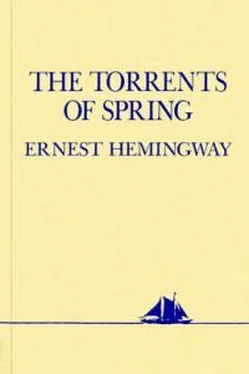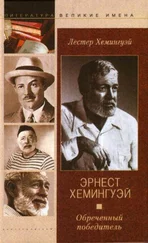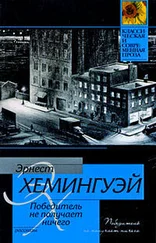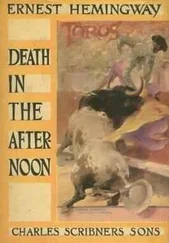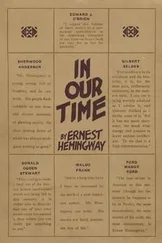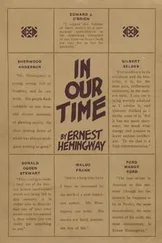Эрнест Хемингуэй - The Torrents of Spring
Здесь есть возможность читать онлайн «Эрнест Хемингуэй - The Torrents of Spring» — ознакомительный отрывок электронной книги совершенно бесплатно, а после прочтения отрывка купить полную версию. В некоторых случаях можно слушать аудио, скачать через торрент в формате fb2 и присутствует краткое содержание. Год выпуска: 2021, Издательство: epubBooks Classics, Жанр: Биографии и Мемуары, Критика, на английском языке. Описание произведения, (предисловие) а так же отзывы посетителей доступны на портале библиотеки ЛибКат.
- Название:The Torrents of Spring
- Автор:
- Издательство:epubBooks Classics
- Жанр:
- Год:2021
- ISBN:нет данных
- Рейтинг книги:3 / 5. Голосов: 1
-
Избранное:Добавить в избранное
- Отзывы:
-
Ваша оценка:
- 60
- 1
- 2
- 3
- 4
- 5
The Torrents of Spring: краткое содержание, описание и аннотация
Предлагаем к чтению аннотацию, описание, краткое содержание или предисловие (зависит от того, что написал сам автор книги «The Torrents of Spring»). Если вы не нашли необходимую информацию о книге — напишите в комментариях, мы постараемся отыскать её.
The Torrents of Spring — читать онлайн ознакомительный отрывок
Ниже представлен текст книги, разбитый по страницам. Система сохранения места последней прочитанной страницы, позволяет с удобством читать онлайн бесплатно книгу «The Torrents of Spring», без необходимости каждый раз заново искать на чём Вы остановились. Поставьте закладку, и сможете в любой момент перейти на страницу, на которой закончили чтение.
Интервал:
Закладка:
What was he saying? He was talking wildly. This would never do. He must pull himself together.
“Scofield Thayer was my best man,” he said. “I’m a Harvard man. All I want is for them to give me and my bird a square deal. No more weltpolitik . Take Dr. Coolidge away.”
His mind was wandering. He knew what it was. He was faint with hunger. This Northern air was too sharp, too keen for him.
“I say,” he said. “Could you let me have just a few of those beans. I don’t like to rush things. I know when to let well enough alone.”
The wicket came up, and a large plate of beans and a small plate of beans, both steaming, appeared.
“Here they are,” the waitress said.
Scripps fell to on the large plate of beans. There was a little pork, too. The bird was eating happily, raising its head after each swallow to let the beans go down.
“He does that to thank God for those beans,” the elderly waitress explained.
“They’re mighty fine beans, too,” Scripps agreed. Under the influence of the beans his head was clearing. What was this rot he had been talking about that man Henry Mencken? Was Mencken really after him? It wasn’t a pretty prospect to face. He had four hundred and fifty dollars in his pocket. When that was gone he could always put an end to things. If they pressed him too far they would get a big surprise. He wasn’t the man to be taken alive. Just let them try it.
After eating his beans the bird had fallen asleep. He was sleeping on one leg, the other leg tucked up into his feathers.
“When he gets tired of sleeping on that leg he will change legs and rest,” the waitress remarked. “We had an old osprey at home that was like that.”
“Where was your home?” Scripps asked.
“In England. In the Lake District.” The waitress smiled a bit wistfully. “Wordsworth’s country, you know.”
Ah, these English. They travelled all over the face of the globe. They were not content to remain in their little island. Strange Nordics, obsessed with their dream of empire.
“I was not always a waitress,” the elderly waitress remarked.
“I’m sure you weren’t.”
“Not half,” the waitress went on. “It’s rather a strange story. Perhaps it would bore you?”
“Not at all,” Scripps said. “You wouldn’t mind if I used the story sometime?”
“Not if you find it interesting,” the waitress smiled. “You wouldn’t use my name, of course.”
“Not if you’d rather not,” Scripps said. “By the way, could I have another order of beans?”
“Best by test,” the waitress smiled. Her face was lined and gray. She looks a little like that actress that died in Pittsburgh. What was her name? Lenore Ulric. In Peter Pan . That was it. They say she always went about veiled, Scripps thought. There was an interesting woman. Was it Lenore Ulric? Perhaps not. No matter.
“You really want some more beans?” asked the waitress.
“Yes,” Scripps answered simply.
“Once again on the loud ones,” the waitress called into the wicket. “Lay off the bird.”
“On the fire,” came the response.
“Please go on with your story,” Scripps said kindly.
“It was the year of the Paris Exposition,” she began. “I was a young girl at the time, a jeune fille , and I came over from England with my mother. We were going to be present at the opening of the exposition. On our way from the Gare du Nord to the hotel in the Place Vendôme where we lodged, we stopped at a coiffeur’s shop and made some trifling purchase. My mother, as I recall, purchased an additional bottle of ‘smelling salts,’ as you call them here in America.”
She smiled.
“Yes, go on. Smelling salts,” Scripps said.
“We registered, as is customary, in the hotel, and were given the adjoining rooms we had reserved. My mother felt a bit done in by the trip, and we dined in our rooms. I was full of excitement about seeing the exposition on the morrow. But I was tired after the journey—we had had a rather nasty crossing—and slept soundly. In the morning I awoke and called for my mother. There was no answer, and I went into the room to waken Mummy. Instead of Mummy there was a French general in the bed.”
“Mon Dieu!” Scripps said.
“I was terribly frightened,” the waitress went on, “and rang the bell for the management. The concierge came up, and I demanded to know where my mother was.
“‘But, mademoiselle,’ the concierge explained, ‘we know nothing about your mother. You came here with General So–and–so’—I cannot remember the general’s name.”
“Call him General Joffre,” Scripps suggested.
“It was a name very like that,” the waitress said. “I was fearfully frightened and sent for the police, and demanded to see the guest–register. ‘You’ll find there that I am registered with my mother,’ I said. The police came and the concierge brought up the register. ‘See, madame,’ he said. ‘You are registered with the general with whom you came to our hotel last night.’
“I was desperate. Finally, I remembered where the coiffeur’s shop was. The police sent for the coiffeur. An agent of police brought him in.
“‘I stopped at your shop with my mother,’ I said to the coiffeur, ‘and my mother bought a bottle of aromatic salts.’
“‘I remember mademoiselle perfectly,’ the coiffeur said. ‘But you were not with your mother. You were with an elderly French general. He purchased, I believe, a pair of mustache tongs. My books, at any rate, will show the purchase.’
“I was in despair. In the meantime the police had brought in the cab driver who had brought us from the gare to the hotel. He swore that I had never been with my mother. Tell me, does this story bore you?”
“Go on,” said Scripps. “If you had ever been as hard up for plots as I have been!”
“Well,” the waitress said. “That’s all there is to the tale. I never saw my mother again. I communicated with the embassy, but they could do nothing. It was finally established by them that I had crossed the channel with my mother, but they could do nothing beyond that.” Tears came into the elderly waitress’s eyes. “I never saw Mummy again. Never again. Not even once.”
“What about the general?”
“He finally loaned me one hundred francs—not a great sum even in those days—and I came to America and became a waitress. That’s all there is to the story.”
“There’s more than that,” Scripps said. “I’d stake my life there’s more than that.”
“Sometimes, you know, I feel there is,” the waitress said. “I feel there must be more than that. Somewhere, somehow, there must be an explanation. I don’t know what brought the subject into my mind this morning.”
“It was a good thing to get it off your mind,” Scripps said.
“Yes,” the waitress smiled, the lines in her face not quite so deep now. “I feel better now.”
“Tell me,” Scripps asked the waitress. “Is there any work in this town for me and my bird?”
“Honest work?” asked the waitress. “I only know of honest work.”
“Yes, honest work,” Scripps said.
“They do say they’re hiring hands at the new pump–factory,” the waitress said. Why shouldn’t he work with his hands? Rodin had done it. Cézanne had been a butcher. Renoir a carpenter. Picasso had worked in a cigarette–factory in his boyhood. Gilbert Stuart, who painted those famous portraits of Washington that are reproduced all over this America of ours and hang in every schoolroom—Gilbert Stuart had been a blacksmith. Then there was Emerson. Emerson had been a hod–carrier. James Russell Lowell had been, he had heard, a telegraph operator in his youth. Like that chap down at the station. Perhaps even now that telegrapher at the station was working on his “Thanatopsis” or his “To a Waterfowl.” Why shouldn’t he, Scripps O’Neil, work in a pump–factory?
Читать дальшеИнтервал:
Закладка:
Похожие книги на «The Torrents of Spring»
Представляем Вашему вниманию похожие книги на «The Torrents of Spring» списком для выбора. Мы отобрали схожую по названию и смыслу литературу в надежде предоставить читателям больше вариантов отыскать новые, интересные, ещё непрочитанные произведения.
Обсуждение, отзывы о книге «The Torrents of Spring» и просто собственные мнения читателей. Оставьте ваши комментарии, напишите, что Вы думаете о произведении, его смысле или главных героях. Укажите что конкретно понравилось, а что нет, и почему Вы так считаете.
